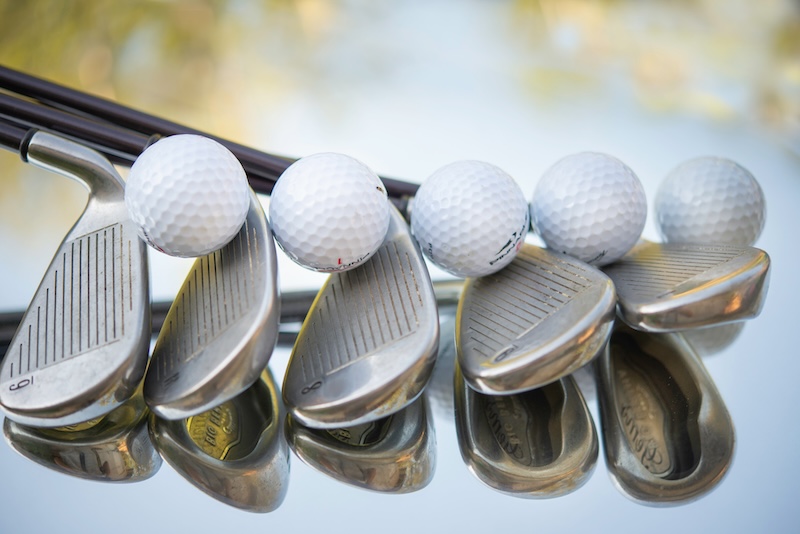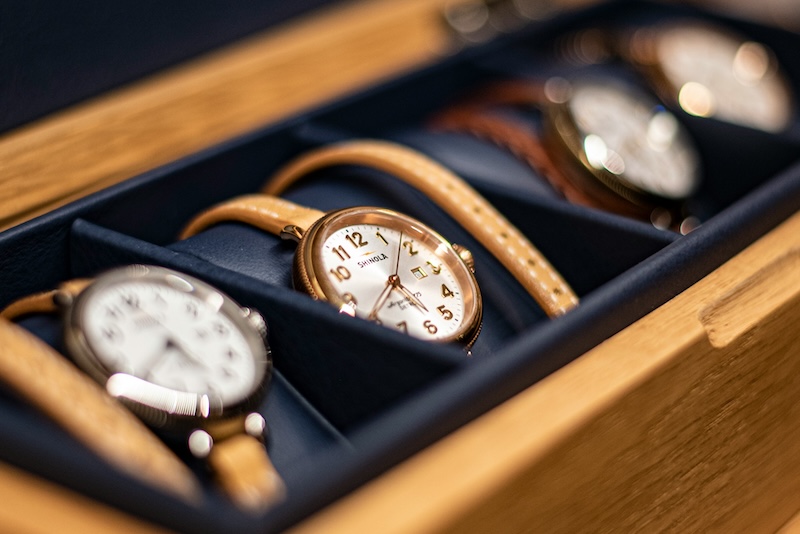Introduction
Titanium is a versatile material known for its unique properties, such as high strength-to-weight ratio, corrosion resistance, and biocompatibility. These characteristics have led to its widespread use in various aspects of daily life, from consumer products to health and wellness applications. Titanium’s practical benefits make it an integral part of many everyday items, enhancing both their performance and durability.
In this article, we explore the numerous applications of titanium in daily life, highlighting how this remarkable material improves the quality of products we use regularly.
Features of Titanium
Titanium offers several features that make it particularly suitable for daily use:
- Lightweight Strength: Titanium is as strong as steel but significantly lighter, making it ideal for products that need both durability and ease of use.
- Corrosion Resistance: Titanium’s resistance to rust and corrosion ensures that products made with it are long-lasting and reliable.
- Biocompatibility: Titanium is non-toxic and does not react negatively with the human body, making it suitable for a variety of health and wellness products.
- Aesthetic Appeal: Titanium’s sleek, metallic appearance makes it popular for fashion accessories and modern consumer goods.
The Most Commonly Used Grades of Titanium in Daily Life
- Grade 2 Titanium: Commercially pure titanium with excellent corrosion resistance, often used for consumer goods and kitchenware.
- Grade 5 Titanium (Ti-6Al-4V): An alloy that offers higher strength, used in sports equipment and high-performance consumer products.
Advantages of Titanium in Daily Life
The use of titanium in daily life offers numerous advantages:
- Durability: Titanium’s high strength and corrosion resistance make it ideal for products that need to withstand daily wear and tear.
- Health and Safety: Titanium’s biocompatibility ensures that it is safe for use in medical implants, body jewelry, and other products that come into contact with the human body.
- Lightweight Comfort: Titanium’s lightweight nature makes it a popular choice for eyewear and portable consumer electronics, providing enhanced comfort and usability.
- Modern Aesthetic: The sleek look of titanium adds a premium feel to consumer products, including watches, smartphones, and kitchen tools.
Key Applications of Titanium in Daily Life
Titanium is used in a variety of products that improve our daily lives:
- Eyewear: Titanium is widely used in the frames of eyeglasses and sunglasses due to its lightweight comfort, strength, and corrosion resistance, making it ideal for daily wear.
- Jewelry and Watches: Titanium’s hypoallergenic nature and sleek appearance make it popular for rings, bracelets, and watch casings, providing both style and durability.
- Sports Equipment: Titanium is used in sports equipment such as golf clubs, tennis rackets, and bicycle frames due to its high strength-to-weight ratio, offering performance enhancement without added weight.
- Kitchenware: Titanium is used for cookware, cutlery, and camping utensils due to its resistance to corrosion and its non-toxic nature, making it safe for food contact.
- Portable Electronics: Titanium is used in the casings of smartphones, laptops, and tablets to provide durability while keeping the device lightweight and portable.
- Medical Devices and Implants: Titanium’s biocompatibility makes it ideal for medical implants, such as joint replacements and dental implants, as well as other medical devices used in daily healthcare.
- Outdoor Gear: Titanium is used for camping gear, such as cookware, utensils, and tent stakes, due to its strength, light weight, and ability to withstand harsh outdoor conditions.





Comparisons: Titanium vs. Other Materials in Daily Life
Titanium is often compared to other materials used in consumer products, such as stainless steel, aluminum, and plastic:
- Titanium vs. Stainless Steel: Stainless steel is durable and corrosion-resistant, but it is heavier than titanium, making titanium preferable for products that need to be lightweight.
- Titanium vs. Aluminum: Aluminum is lightweight and affordable, but titanium provides superior strength and is more resistant to wear and corrosion.
- Titanium vs. Plastic: Plastic is lightweight and inexpensive, but it lacks the strength and durability of titanium, which provides a more premium feel and longer lifespan.
Benefits of Using Titanium in Daily Life
The benefits of using titanium in daily life are numerous:
- Longevity: Titanium’s resistance to corrosion and its durability ensure that products last longer, providing better value over time.
- Comfort: The lightweight nature of titanium makes it comfortable for wearable items, such as eyeglasses, jewelry, and watches.
- Health and Safety: Titanium’s hypoallergenic and biocompatible properties make it a safe choice for medical implants and accessories that come into contact with the skin.
- Aesthetic Appeal: Titanium’s sleek, modern look adds a premium touch to consumer products, making them more appealing to users.
Challenges in Using Titanium in Daily Life
Despite its advantages, there are challenges associated with using titanium in daily life:
- High Cost: Titanium is more expensive compared to other materials like stainless steel or plastic, which can limit its use in some consumer products.
- Specialized Manufacturing: Titanium is challenging to machine and requires specialized equipment, which can increase the production cost of consumer goods.
Future Trends for Titanium in Daily Life
The use of titanium in everyday products is expected to grow as advancements in manufacturing make it more affordable and accessible. Emerging trends include the use of titanium in wearable technology, such as smartwatches and fitness trackers, due to its durability and lightweight nature. Titanium’s role in sustainable products is also likely to expand, as its longevity and recyclability make it an environmentally friendly choice for a wide range of consumer goods.
FAQs about Titanium in Daily Life
- Why is titanium used in eyewear frames?
- Titanium is used in eyewear frames due to its lightweight, strong, and corrosion-resistant properties, making it comfortable and durable for daily wear.
- Is titanium jewelry safe for people with metal allergies?
- Yes, titanium is hypoallergenic, making it a safe choice for individuals with metal allergies or sensitive skin.
- What types of sports equipment are made from titanium?
- Titanium is used in sports equipment such as golf clubs, tennis rackets, and bicycle frames due to its high strength and light weight.
- Can titanium be used for cookware?
- Yes, titanium is used for cookware and cutlery because it is non-toxic, lightweight, and resistant to corrosion, making it safe for food contact.
- How does titanium compare to stainless steel in consumer products?
- Titanium is lighter and more corrosion-resistant compared to stainless steel, making it preferable for products that require both durability and light weight.
- Why is titanium used in portable electronics?
- Titanium is used in portable electronics due to its durability and lightweight properties, providing protection without adding bulk.
- Are titanium implants safe for long-term use in the body?
- Yes, titanium is biocompatible and resistant to corrosion, making it safe for long-term use in medical implants.
- How does titanium enhance the comfort of wearable items?
- Titanium’s lightweight nature reduces pressure on the skin, making wearable items like eyeglasses and watches more comfortable for extended use.
- Is titanium used in camping gear?
- Yes, titanium is used in camping gear such as cookware, utensils, and tent stakes due to its light weight, durability, and resistance to harsh conditions.
- What are the advantages of titanium over plastic in consumer products?
- Titanium is stronger, more durable, and has a more premium appearance compared to plastic, though it is more expensive.
- Can titanium be used for dental implants?
- Yes, titanium’s biocompatibility makes it ideal for dental implants, providing a strong and long-lasting solution.
- Why is titanium used in watches?
- Titanium is used in watch casings because it is lightweight, durable, and resistant to corrosion, providing both comfort and longevity.
- How does titanium contribute to sustainable consumer products?
- Titanium’s durability and recyclability contribute to sustainability by reducing the need for frequent replacements and minimizing waste.
- Is titanium more expensive than other materials used in consumer products?
- Yes, titanium is generally more expensive due to its unique properties and the specialized manufacturing processes required.
- What future developments are expected for titanium in consumer goods?
- Future developments include increased use in wearable technology, sustainable products, and advanced manufacturing techniques to reduce costs and expand its accessibility.
Conclusion
Titanium’s unique properties make it an ideal material for a wide range of everyday applications. Its lightweight strength, corrosion resistance, and biocompatibility enhance the performance, comfort, and longevity of consumer products, from eyewear and jewelry to kitchenware and medical devices. Despite challenges related to cost, the benefits of using titanium in daily life ensure its continued growth and expanding role in improving the quality of everyday items.






